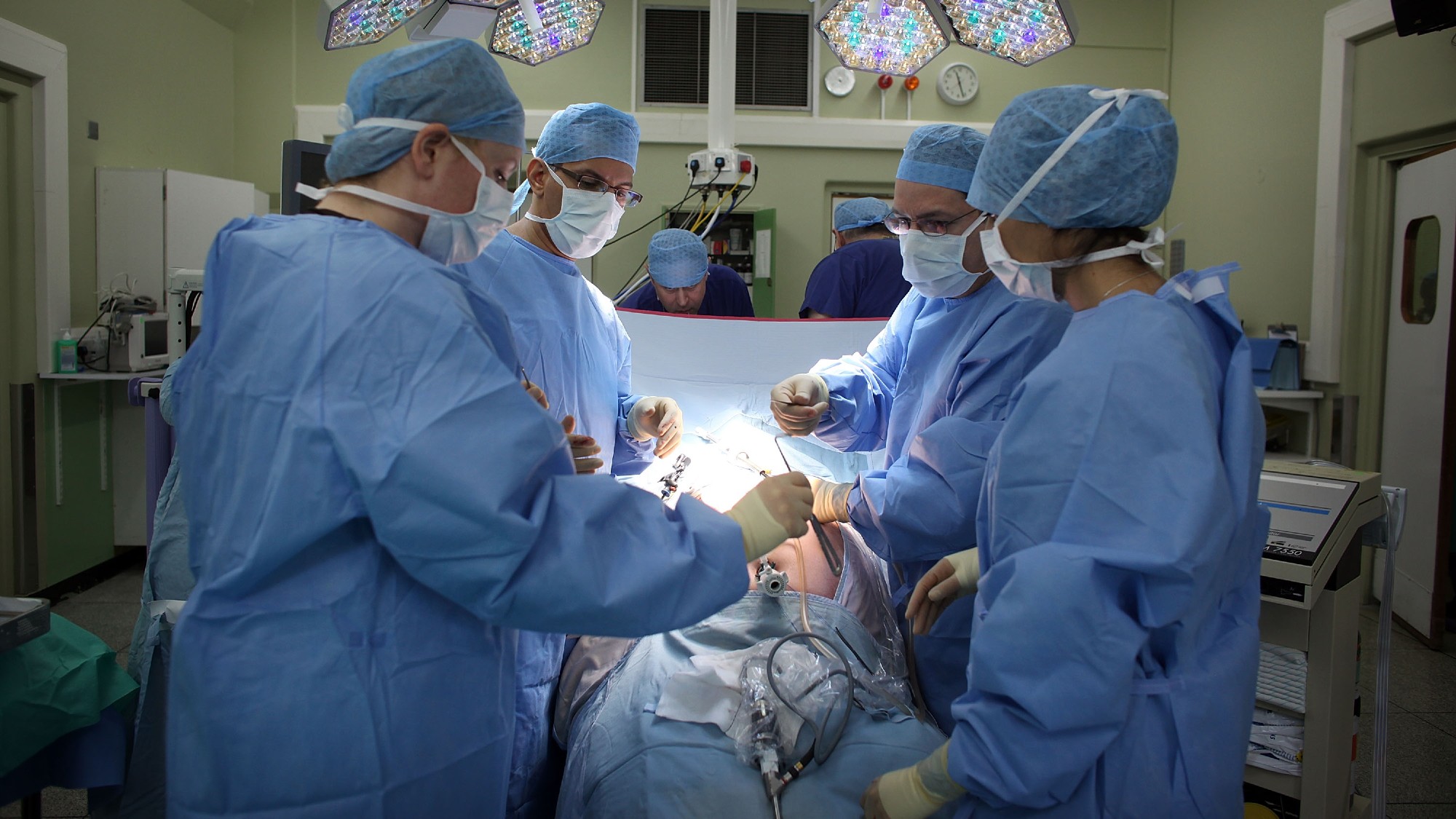How much should doctors trust parental intuition?
Study finds parents' concern can be better at spotting critical illness than vital signs

A free daily email with the biggest news stories of the day – and the best features from TheWeek.com
You are now subscribed
Your newsletter sign-up was successful
A "smart mother" often makes a "better diagnosis than a poor doctor": medical students are often given this century-old advice from pioneering German surgeon Dr August Bier – and a new study has confirmed just how seriously they should take it.
Parental intuition is better than medical tests at predicting the deterioration of an unwell child, researchers have found – strengthening the case for parents' concerns to be taken more seriously in hospital settings, including giving parents the right to ask for a second opinion.
'Permission to speak up'
The study, published in the Lancet Child & Adolescent Health, analysed data from nearly 190,000 A&E visits by children to a hospital in Melbourne, Australia. The carer of each child was asked, "Are you worried your child is getting worse?" The researchers found that "caregiver concern for clinical deterioration" was "significantly associated" with a need for ICU admission and mechanical ventilation, with children four times more likely to need ICU care if their caregiver had voiced these concerns.
The Week
Escape your echo chamber. Get the facts behind the news, plus analysis from multiple perspectives.

Sign up for The Week's Free Newsletters
From our morning news briefing to a weekly Good News Newsletter, get the best of The Week delivered directly to your inbox.
From our morning news briefing to a weekly Good News Newsletter, get the best of The Week delivered directly to your inbox.
In fact, caregiver concern was "more strongly associated" with ICU admission than "any abnormal vital sign", including abnormal heart rate, abnormal breathing or blood pressure changes. Overall, the researchers found, children of caregivers who had said they were concerned that their child was deteriorating, were "more unwell, more likely to be admitted to an inpatient ward, and stayed in hospital almost three times as long".
These are findings "we cannot ignore", said lead study author Erin Mills, of Monash University, Melbourne. Parents should be treated "as part of the care team. We want every hospital to recognise that, and give parents the permission, and power, to speak up."
Gut feelings
Intuition, sometimes known as a gut feeling, is "the idea of making decisions without analytical reasoning", said Parents.com. Emotions play a key role in this sort of decision-making and, some neuroscientists believe, "past emotional experiences" can create "future gut feelings".
Added to that, parents – particularly mothers – can be more susceptible or sensitive to cues from their child. "The rise and fall of gestational hormones over the course of her pregnancy, along with the surge of oxytocin during labour and birth, prime mothers for responsiveness," anthropologist Sarah Hrdy, author of "Mother Nature", told the parenting site. "A new mother's top priority is often to make sure her baby is safe, and she will have a low threshold for sensing anything amiss."
A free daily email with the biggest news stories of the day – and the best features from TheWeek.com
But it can sometimes it can be hard to distinguish intuition from anxiety and fear – hence some medics' reluctance to place too much emphasis on parental concern.
A boost for Martha's Rule
The study findings will boost support for Martha's Rule, a new scheme rolling out in NHS hospitals that gives patients and their families the right to an urgent second medical opinion on the condition of a seriously ill patient.
The scheme is named after Martha Mills, who died of sepsis in a London hospital: her parents "repeatedly raised concerns" about her deterioration but were "dismissed" by doctors, said The Times.
MPs were told in March that thousands of patients or their loved ones have already sought a second opinion about their NHS care under the trial.
Chas Newkey-Burden has been part of The Week Digital team for more than a decade and a journalist for 25 years, starting out on the irreverent football weekly 90 Minutes, before moving to lifestyle magazines Loaded and Attitude. He was a columnist for The Big Issue and landed a world exclusive with David Beckham that became the weekly magazine’s bestselling issue. He now writes regularly for The Guardian, The Telegraph, The Independent, Metro, FourFourTwo and the i new site. He is also the author of a number of non-fiction books.
-
 What is the endgame in the DHS shutdown?
What is the endgame in the DHS shutdown?Today’s Big Question Democrats want to rein in ICE’s immigration crackdown
-
 ‘Poor time management isn’t just an inconvenience’
‘Poor time management isn’t just an inconvenience’Instant Opinion Opinion, comment and editorials of the day
-
 Bad Bunny’s Super Bowl: A win for unity
Bad Bunny’s Super Bowl: A win for unityFeature The global superstar's halftime show was a celebration for everyone to enjoy
-
 Growing a brain in the lab
Growing a brain in the labFeature It's a tiny version of a developing human cerebral cortex
-
 Mixed nuts: RFK Jr.’s new nutrition guidelines receive uneven reviews
Mixed nuts: RFK Jr.’s new nutrition guidelines receive uneven reviewsTalking Points The guidelines emphasize red meat and full-fat dairy
-
 Trump HHS slashes advised child vaccinations
Trump HHS slashes advised child vaccinationsSpeed Read In a widely condemned move, the CDC will now recommend that children get vaccinated against 11 communicable diseases, not 17
-
 The truth about vitamin supplements
The truth about vitamin supplementsThe Explainer UK industry worth £559 million but scientific evidence of health benefits is ‘complicated’
-
 Health: Will Kennedy dismantle U.S. immunization policy?
Health: Will Kennedy dismantle U.S. immunization policy?Feature ‘America’s vaccine playbook is being rewritten by people who don’t believe in them’
-
 Choline: the ‘under-appreciated’ nutrient
Choline: the ‘under-appreciated’ nutrientThe Explainer Studies link choline levels to accelerated ageing, anxiety, memory function and more
-
 How music can help recovery from surgery
How music can help recovery from surgeryUnder The Radar A ‘few gentle notes’ can make a difference to the body during medical procedures
-
 Vaccine critic quietly named CDC’s No. 2 official
Vaccine critic quietly named CDC’s No. 2 officialSpeed Read Dr. Ralph Abraham joins another prominent vaccine critic, HHS Secretary Robert F. Kennedy Jr.